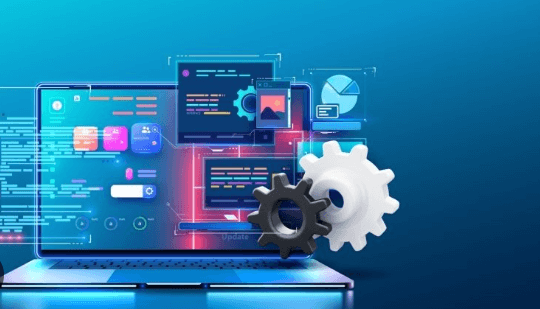
Empowering Minds Through Digital Learning Platforms
Revolutionizing Education in the Digital Era
In the age of rapid technological advancement, learning platform have become a cornerstone of modern education. These platforms offer accessible, flexible, and interactive ways for students and professionals to acquire new knowledge. From online universities to skill-based learning apps, digital education has transformed how people learn by removing barriers of geography and time. Unlike traditional classrooms, these systems provide resources that can be accessed anytime, allowing learners to control their pace and focus on their individual needs. This personalized approach has created a global shift where education is no longer confined to physical spaces but expanded into the digital universe.
Furthermore, the demand for online education has surged due to its adaptability and efficiency. Learners can choose from various courses in diverse fields—technology, art, business, health, and beyond—without the constraints of location. Educators, too, benefit by reaching wider audiences and leveraging digital tools to enhance engagement. With the inclusion of multimedia lessons, interactive quizzes, and discussion boards, online learning platforms have redefined how information is shared and understood. The digital revolution in education has not only improved accessibility but also reshaped the future of lifelong learning.
The Role of Technology in Modern Learning Platforms
Technology is the foundation of every successful learning platform. Artificial intelligence, data analytics, and cloud computing play essential roles in ensuring efficient delivery of educational content. AI-powered systems personalize learning paths, adapting to each learner’s strengths and weaknesses. For instance, algorithms can recommend lessons, track progress, and provide instant feedback, ensuring that learners stay motivated and achieve their goals. This kind of smart learning experience helps students grasp difficult concepts more effectively while maintaining engagement throughout the course.
Moreover, technological advancements have introduced features like virtual classrooms, video conferencing, and real-time collaboration tools. These innovations simulate traditional classroom environments and encourage participation, communication, and teamwork. Many platforms also incorporate gamification—reward systems, badges, and leaderboards—to make learning more enjoyable. This integration of technology bridges the gap between learners and educators, fostering an immersive educational journey that blends structure with creativity. Technology not only supports education but also ensures it evolves with the changing needs of society.
See also: Exploring The Role Of Oled Manufacturers In Modern Technology
The Rise of Self Paced and Flexible Learning
One of the greatest strengths of modern learning platforms is the freedom they offer through self-paced learning. Unlike conventional education systems bound by rigid schedules, online learning enables students to decide when and how they study. This flexibility empowers individuals who are balancing work, family, or other responsibilities to continue their education without compromise. Learners can pause, revisit, or accelerate their lessons based on their comprehension levels, ensuring a deeper understanding of topics rather than superficial memorization.
Self-paced learning also fosters independence and accountability. Students develop time management skills and take responsibility for their progress, traits that are highly valued in both academic and professional settings. The asynchronous structure of online platforms allows for diverse learners across time zones to participate equally. This inclusivity encourages global interaction, where students from different cultures share ideas and collaborate on projects. Such flexibility is what makes digital education sustainable and appealing to a world constantly seeking balance between personal growth and real-life commitments.
Bridging the Skills Gap Through Online Education
The global workforce is evolving rapidly, and learning platforms are instrumental in bridging the skills gap that traditional education often overlooks. Many industries now require specialized training that keeps pace with technological and market changes. Online platforms like Coursera, Udemy, and LinkedIn Learning have responded by offering courses tailored to industry needs. These programs are often developed in collaboration with experts and leading institutions, ensuring the content remains relevant and up-to-date. Professionals can upgrade their skills quickly, making themselves more competitive in a dynamic job market.
Additionally, learning platforms provide opportunities for continuous professional development. Employers increasingly encourage their teams to enroll in online courses to enhance productivity and innovation. Microlearning—short, focused lessons—has become particularly effective for busy professionals seeking quick skill enhancement. By offering certifications and digital badges, these platforms validate learners’ achievements and enhance their career prospects. In essence, digital learning is not just an academic tool but a catalyst for economic growth and professional advancement.
Building Community and Collaboration in Virtual Learning Spaces
While online education emphasizes individual learning, it equally promotes community and collaboration. Learning platforms have developed interactive features that connect students and instructors across the globe. Discussion boards, peer reviews, group projects, and social learning tools create an environment where knowledge is shared collectively. This sense of community enhances motivation and helps learners retain information through interaction and teamwork. Collaborative learning transforms passive learning into active engagement, where participants learn as much from each other as from instructors.
Furthermore, the concept of networking through learning platforms has become increasingly valuable. Learners can connect with peers who share similar professional goals, forming networks that extend beyond the virtual classroom. Educators also benefit from these communities by sharing teaching techniques and developing better instructional strategies. Through collaboration, online platforms are not just centers of knowledge delivery but ecosystems that nurture communication, critical thinking, and creativity. The future of education lies in such interconnected learning environments where human connection thrives through digital means.



